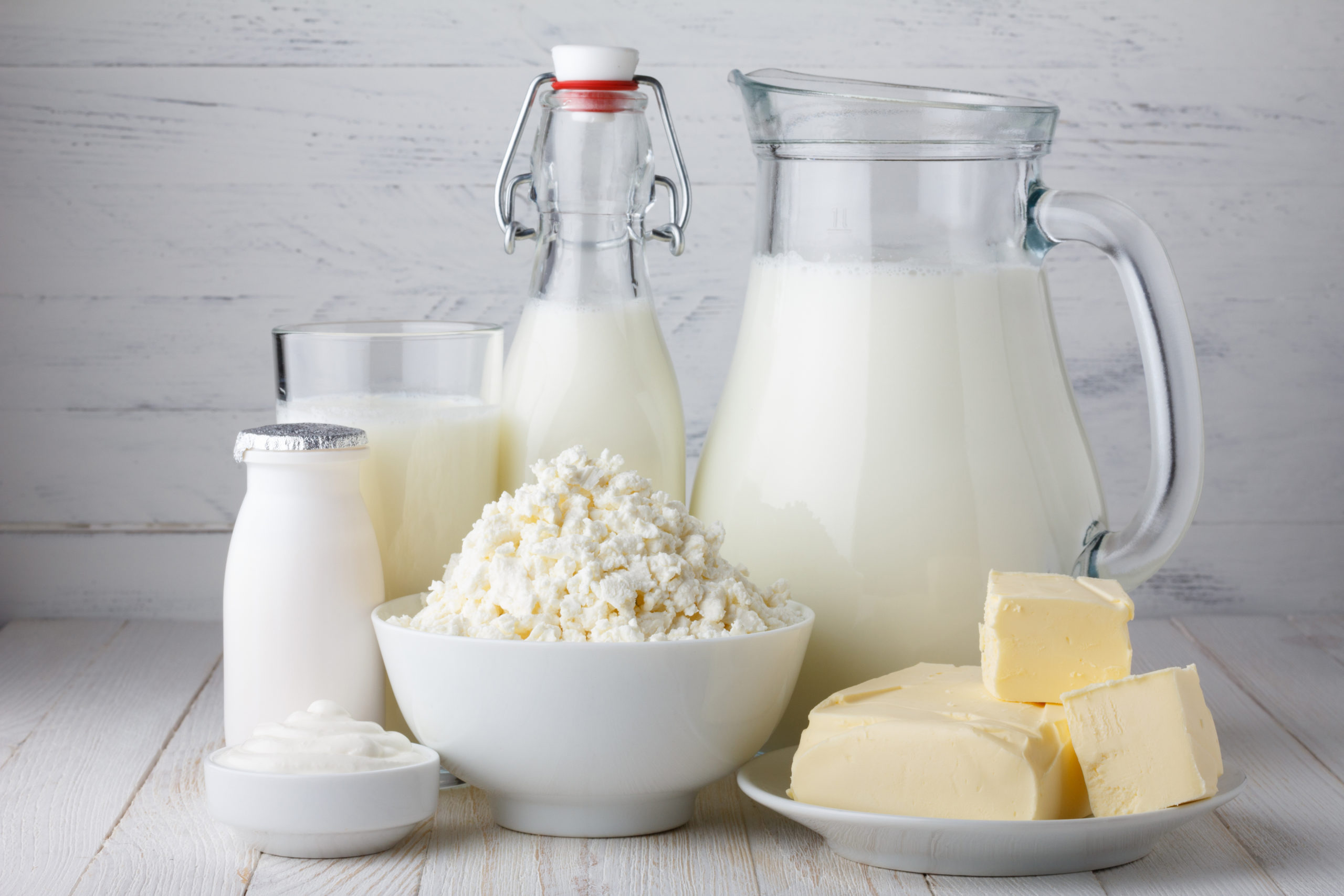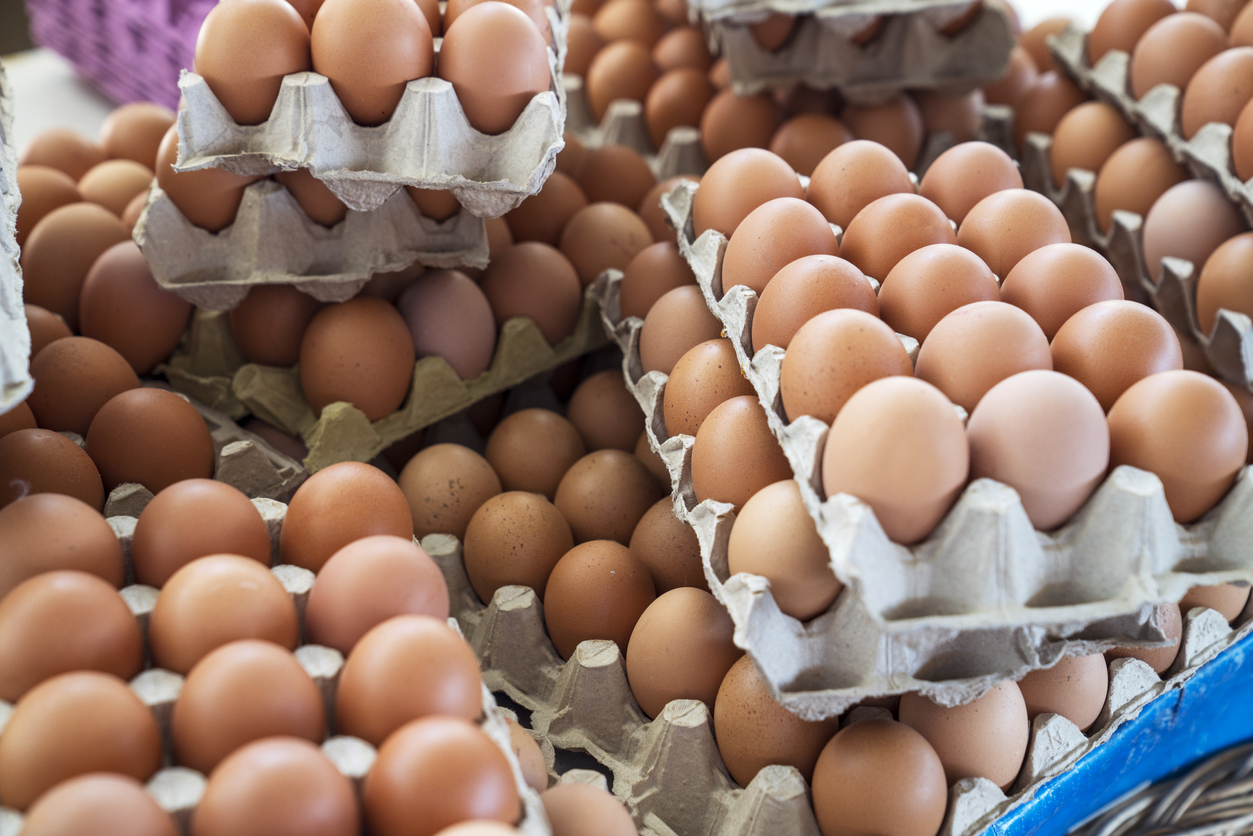Over the years, a lot of misinformation has been spread about eggs and how good they are for you to eat. Unfortunately, a lot of this information is quite untrue and has prevented people from eating them for many years.
Wondering what’s true about eggs and what’s not? Don’t worry, we’ve debunked some of the most commonly believed myths right here.
Brown Eggs Are Healthier
Eggs come in a wide range of colours, from white and brown to blue and green. However, the colour of the shell has nothing to do with the nutritional content of the egg inside. It’s just a genetic thing that is based entirely on the type of chicken that laid the egg.
Some people do prefer brown eggs due to the colours, but if you find them priced higher, it’s merely due to the fact that they’re likely larger than the white eggs next to them.
Raw Eggs Have More Protein
We’ve all seen bodybuilders drink down raw eggs to boost their protein levels, but the fact is, eggs have the same amount of protein cooked or uncooked. However, it’s easier for your body to absorb the cooked protein if the egg is cooked. You take in nearly double the protein once the egg has been cooked, so if it’s the protein you’re after, you’ll definitely want to boil or scramble them.
It’s generally best to eat your eggs cooked, as it offsets the slight potential for cross contamination which may affect your stomach.
Eggs Must Be Refrigerated
This is still highly debated by many, but the research shows that as long as eggs are not washed after collecting, they may remain at room temperature for up to three weeks. There are a few exceptions to this, for example, if eggs have already been refrigerated, they must remain refrigerated. The changing temperatures can result in spoilage.
Secondly, if the eggs are washed, the protective film that is on them will be removed. This can result in rapid spoiling, so you definitely need to refrigerate your eggs if you have washed them.
Cage Free Chickens Are Free Range
You’ll find a lot of labels on eggs, including cage free and free range or organic. Many people get confused with the labels and assume that cage free means the chickens are free to roam about and enjoy their lives. Unfortunately, it just means they’re not kept in a tiny cage all the time.
Many cage free hens are actually in large crowded spaces with a large number of other hens. This is certainly a better life than being cramped in a tiny cage, but it is not the same as free range, which means the chickens are able to run around the farm during the day.
Eggs Are Bad for People with High Cholesterol
Eggs do contain 211 mg of cholesterol, which had doctors forbidding these ovals of goodness for quite some time for anyone at risk for heart disease. However, further studies have shown that eating eggs doesn’t actually cause higher cholesterol. Instead, it’s the consumption of trans fats and saturated fats, as well as simple sugars that can cause serious problems for your heart.
Egg Whites Are Better for You Than the Yolk
If you’ve been enjoying egg white omelettes for breakfast, you probably assume this is the healthiest part of the egg. However, that’s not quite the case.
Egg whites are certainly lower in calories, with just 15-18 calories per egg white and the remaining 55 calories in the yolk, but the egg white is also lacking in healthy fats, which your body needs. The yolk is also where all the real nutrients are, including vitamins B12 and D, choline, and more. Eating the yolk is generally better for a diet, because the fat keeps you feeling full for much longer.
Eggs Should Be Stored in the Fridge Door
Many refrigerators have egg shelves in the door, but this is the worst place to keep your eggs. They should be kept at a steady temperature once refrigerated and that does not happen when they’re in the door. After all, every time you open the door, the eggs are exposed to higher temperatures.
Soft Boiled Eggs Are Dangerous
Many people believe that soft boiled eggs are dangerous because they could cause food poisoning. The runny yolk can make people worry, but it’s actually quite safe. Thanks to the UK food safety regulations, chicken eggs are safe for you to eat and they are highly unlikely to cause food poisoning simply because the yolk is still runny.
Blood Spots Mean the Egg Was Fertilised
When you crack your eggs into the bowl or pan, you may notice a small brown or red spot in the white. That is called a blood spot and it has nothing to do with fertilisation at all. If the idea of eating a baby chick is stressful for you, then rest assured that these eggs would not have turned into a baby.
In most cases, a blood spot is simply a broken blood vessel from when the egg was being formed within the hen. They may be caused by genetic issues or a vitamin A deficiency and are not harmful in any way. Simply remove it with the tip of a spoon and go on with your cooking as usual.
White Strings Must be Removed
If you’ve ever cracked an egg and noticed a white stringy bit in the egg, you may feel that it has to be removed. This is actually just as edible as the rest of the egg and won’t affect the final product at all.
The strings are called chalazae and are meant to hold the yolk in place. They’re not harmful in the least and should be ignored, though there’s nothing wrong with removing them if you really want to.
Pregnant Women Should Not Eat Eggs
If you’ve heard that your baby could become allergic to eggs if you eat them during pregnancy, rest assured that this is a disproved myth. Eggs are an excellent source of protein and vitamins for a pregnant mother and should be eaten if she chooses to. The only effect it will have on your unborn child is to give them extra nourishment.
If you’re expecting, don’t worry about avoiding eggs at all. They are still part of a healthy diet.
Eggs Should Not Be Eaten Daily
Some people have heard that eating eggs on a daily basis is bad for their health, but that’s actually not true. Of course, as with everything, you should aim for moderation but eating a couple of large eggs every day is quite good for you.
Studies have shown that people who eat eggs regularly tend to have a higher quality diet, so it’s actually a good choice for your daily breakfast. Just be sure to eat a variety of foods throughout the day to create a balanced diet, as with anything else.
The True Benefits of Eggs
Overall, eggs are an excellent choice for including protein and nutrients in your diet. They’re affordable, tasty, and packed with nutrition that anyone can enjoy. They make a meal on their own, or you can mix them with other ingredients to create elaborate dishes that everyone will enjoy.
With so many ways to prepare them, you really never need to get bored of eating eggs. They can be prepared in dishes where they are featured, but not the main ingredient, or prepared alone.
Scrambled, baked, poached, or boiled, you can easily create a whole new dish to try every single day. Now that you know many of the myths surrounding eggs, you can go ahead and enjoy them guilt-free.
Ready to start eating more eggs in your own diet? Freshways has all the eggs you could possibly want. Put in your order today. We are a wholesale provider of a vast array of foods including milk, yoghurt, cheese and bakery items. For fresh food delivery across London, Wales and the UK, get in touch.


